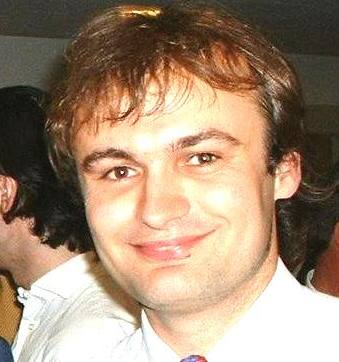
Lubos Motl
assistant professor, Cambridge, USA
| Interplay between theory and experiment (March 2006) |  Lubos Motl assistant professor, Cambridge, USA |
file: interplay.html, 12Mar2006
full original article see here
(highlighting by meteoLCD)
....
Background vs. signal
It is extremely important to know what is the “natural background” if we try to figure out whether there is a new “effect”. Some people like Rasmus Benestad just don’t want to study the natural background at all - they immediately want to get effects (and attention of the press in which they're pretty successful because many journalists are pretty dumb) - which is why I think that they are crackpots. As mentioned previously, one of the defining features of crackpots is that they want to make big discoveries before they learn what is the science describing the “simpler” phenomena before their discovery.
Let me say why their research is defective in one more way.
Whenever we try to design scientific theories that describe something, we must
know which quantities in reality will be described by our theories and we must
be able to isolate them.
By isolating them, I mean both theoretical as well as experimental isolation. In
theories we must know - or at least feel - that the effects we have neglected do
not change our predictions too much. In experiments we must know - or at least
have rational reasons to believe - that the effects we observe are not caused by
something else, something “more ordinary”. When we try to observe telepathy,
for example, we must know that the people are not communicating by some more
"natural" methods.
The climate modellers almost never try to follow these
lines. They have a completely vague, sleeky set of ideas that predict anything
and everything - warming, cooling, bigger variations, smaller variations, more
hurricanes, less winds, increased circulation, diminished circulation, more ice
in Antarctica, less ice in Antarctica, and so forth - and then they’re arguing
that the data agrees with these predictions. Of course they emphasize the points
whenever they agree and de-emphasize them whenever they disagree. This is not
science.
Of course there is no direct way how one can ever construct a scientific
framework out of this mess. To do science, one must focus on a limited class of
questions that are sufficiently well-defined and that have a chance to be
“cracked” by a theory. I am sure that there are many nice laws about the
climate that we don't know yet, and I am equally sure that the work of most of
the "mainstream" climate scientists today is not helpful in revealing
these laws.
When we try to argue that the humans are suddenly
dictating the climate trends - after 5 billion years when they were dictated by
other, more natural things - it is a rather extraordinary conjecture that
deserves extraordinary evidence. For getting any evidence, it is absolutely
necessary to understand how the climate was behaving for 5 billion years before
the hypothetical “revolution” occured around 1917. We must know what were
the fluctuations and how they depended on the time scale. We can only learn such
things reliably by observing the real world. Only once we know the background,
we can study the additional effects.
Studying additional trends above a background that we don’t need to understand
is equivalent to the Biblical literalism.
Summary
Some readers may feel that the two parts of this text contradict each other because I defend theory in the first part and the observations in the second part. However, I am convinced that every sane scientist (and informed layman) knows that both theory as well as experiments are important. My goal was certainly different from changing the balance to one side. My goal was to emphasize that science should be looking for robust conclusions and theories and it should be attempting to find the situations in which the phenomena exhibit themselves in the sharpest possible way. And a necessary principle to achieve this goal is to try to follow these principles:
______________________________________
See also here on temperature and autocorrelation
Luboš Motl's reference frame E=mc2 a test ... interplay between theory and experiment